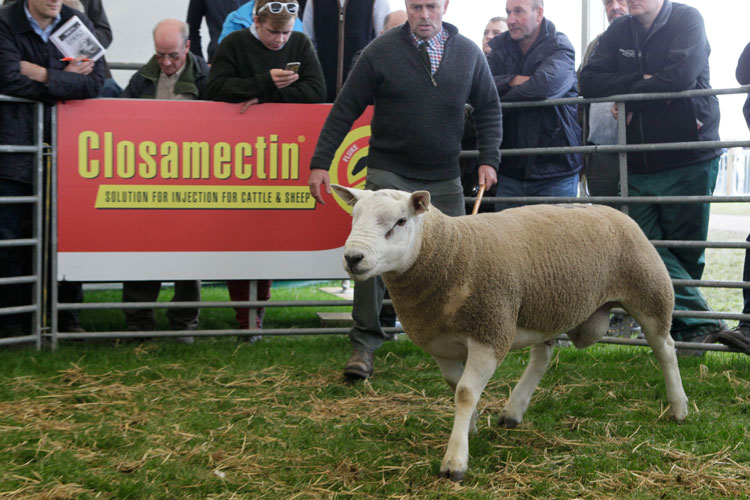
As the sheep farming sector enters peak fluke season, Norbrook, a leading global provider of veterinary pharmaceuticals, has shared expert advice on implementing effective parasite control strategies.
The importance of farmers working alongside vets and SQPs is being highlighted as a cornerstone of such flock health planning, together with having effective quarantine treatment and anthelmintic resistance strategies in place for all bought-in stock.
Dr Chris Geddes, Marketing Manager at Norbrook, explains: “Having a well-structured plan in place will not only help improve the health and welfare of animals, but also directly improve the profitability of farming businesses. A core part of any such plan should be the development of a sustainable fluke and worm parasite control system, tailored to the specific circumstances and requirements of individual farms.”
The advice comes as the sheep industry prepares for this year’s Closamectin Kelso Ram Sales event, hosted by the Border Union Agricultural Society and sponsored by Norbrook.
Giving an insight into the scale of the issue, Philip Skuce, a parasitologist and Principal Scientist at the Moredun Research Institute, reveals that fluke is becoming an increasing problem for UK farmers.
“We have seen an increased prevalence of fluke in Scottish livestock in the past 5-10 years, plus a west-to-east spread of the disease into previously fluke-free areas. We have also seen the emergence of rumen fluke, a related parasite that we now know shares the same intermediate mud snail host as liver fluke.

“To combat this combined threat, it is important for farmers to understand the fluke risk on their own farms and work with their vet or animal health advisor to make informed decisions about when to treat animals and which product to choose – essentially it is a case of treating the right animal with the right product at the right time and in the right way!”
Manage and slow development
Dr Skuce explains that, although the development of resistance is an inevitable consequence of anthelmintic use, steps can be taken to manage and slow its development.
“Post-drench efficacy checks (PDECs) are a good idea – and if these flag up any concerns, farmers can arrange a full faecal egg count reduction test. Faecal egg count monitoring can be done at any time through the grazing season, ideally every few weeks, and composite/mob samples taken to reduce cost.”
Addressing the importance of quarantining when processing bought-in sheep, Dr Geddes explains:
“There is a considerable amount of animal movement in the UK livestock industry, with animals moving to and from sales and markets and to and from seasonal grazing. If this movement isn’t managed carefully, they will take their parasites with them.
“This is why any quarantine programme should include an effective anthelmintic treatment as a matter of course – farmers simply cannot take any chances.”
This advice is backed up by the Sustainable Control of Parasites in Sheep (SCOPS) group, which says quarantine should be applied to all in-coming sheep.
This includes sheep purchased from other flocks, including rams, and sheep which have been grazing on other farms or common grazing where the resistance status is unknown or likely to be different from the home farm.
Norbrook is the sponsor of the Closamectin Kelso Ram Sales, taking place at Springwood Park in Scotland on Friday, 8th September. At last year’s show the company launched Solantel drench, which contains the flukicide closantel and complements established product Closamectin Injection, which is a unique combination of closantel with ivermectin, a wormer and external parasiticide.
The first Ram Sale was held in Kelso in 1836. Hosted by the Border Union Agricultural Society, it is now firmly established as one of the major annual sheep sales events in the UK. Last year’s event saw 4,285 rams sold from 16 different breeds, with a new record turnover for the day of almost £3 million.
